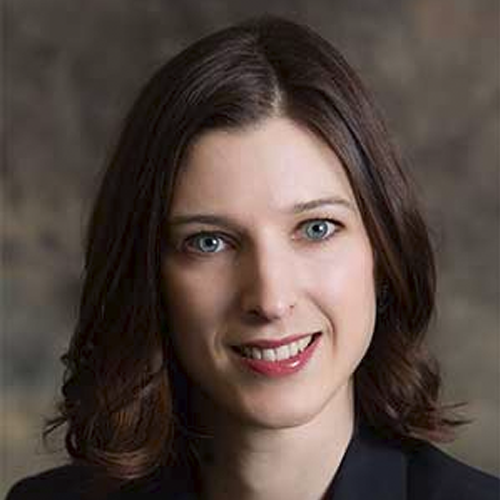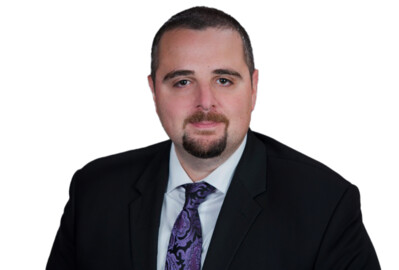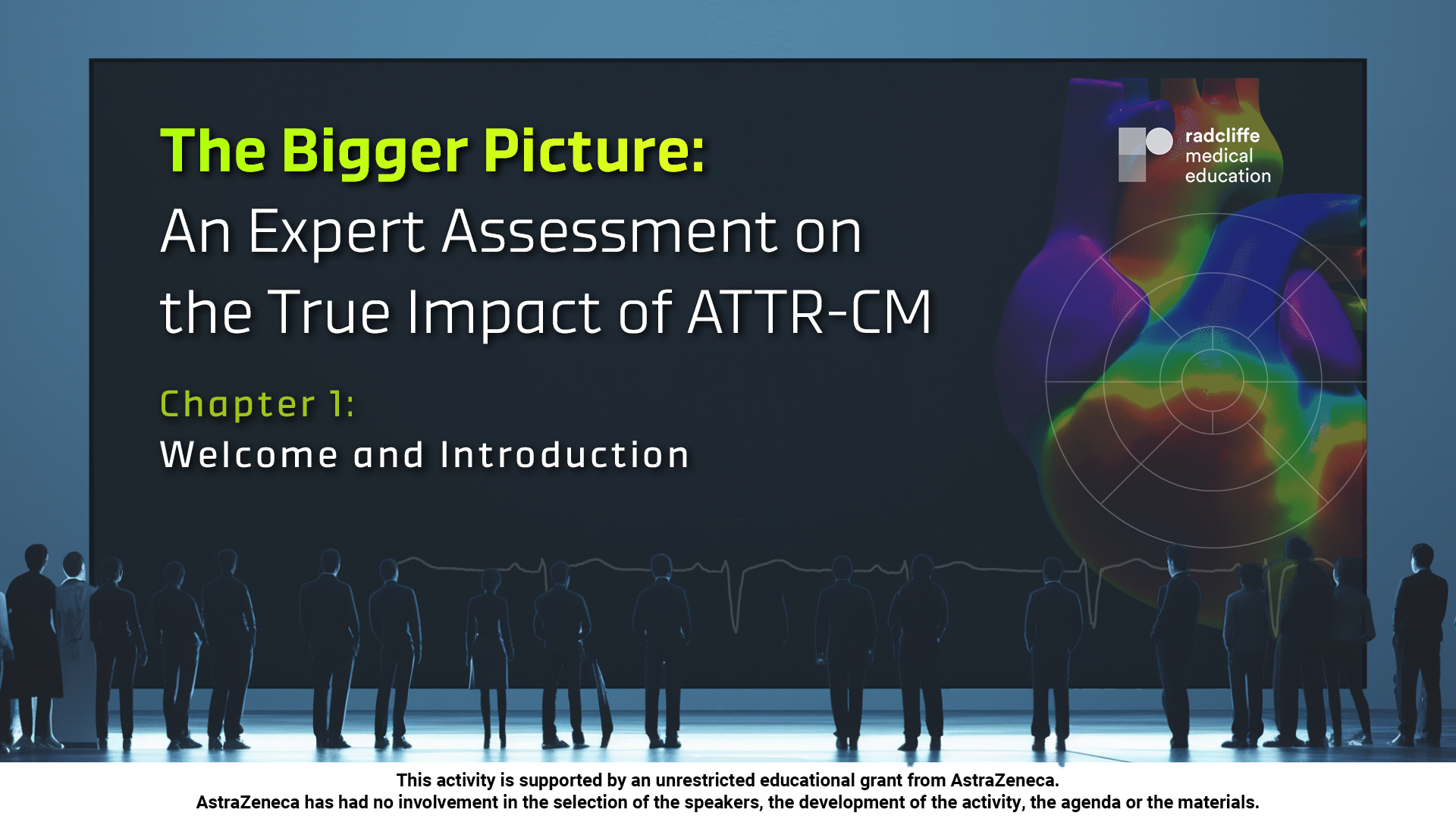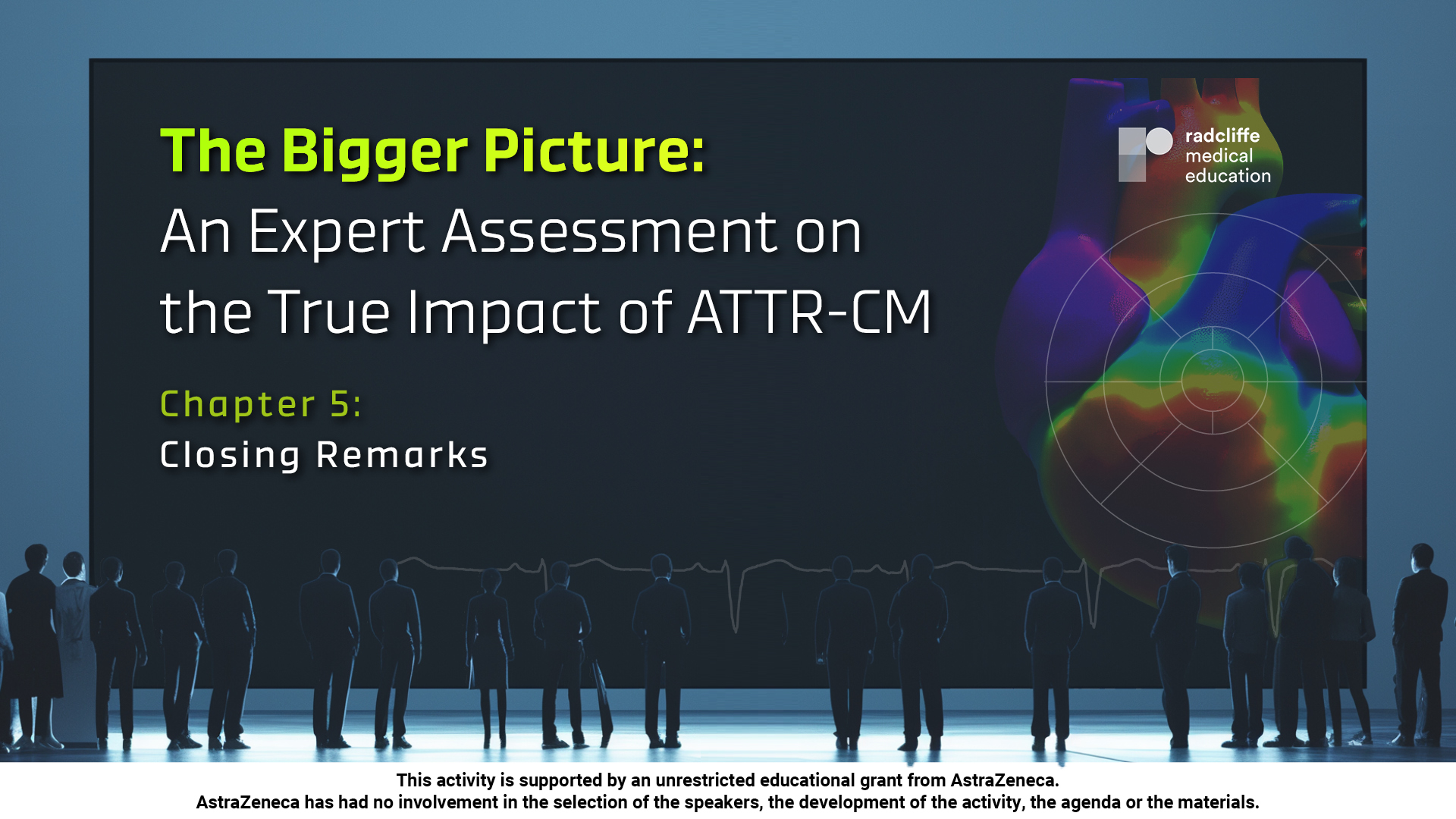The Bigger Picture: An Expert Assessment on the True Impact of ATTR-CM
Published: 11 September 2024
-
Views:
 4372
4372
-
Likes:
 7
7
-
Views:
 4372
4372
-
Likes:
 7
7
Overview
First presented at ESC 2024, this on-demand programme sees Prof Julian Gillmore (University College London, London, UK) lead a distinguished faculty compromising of Dr Ahmad Masri (Oregon Health & Science University Medical Group, Portland, US), Dr Margot Davis (University of British Columbia, Vancouver, CA), and Dr Giuseppe Vergaro (Sant’Anna, Pisa, IT).
The faculty present recent epidemiological data on ATTR-CN incidence and trends. The session will teach how to identify patients who undergo detailed diagnosis and list the red flags indicating ATTR amyloidosis.
The live ESC 2024 symposium was CME-accredited, this on-demand version is not.
Key Learning Objectives
- Recall the most recent epidemiological data on ATTR-CM incidence and diagnostic trends
- List red flags indicating the presence of ATTR amyloidosis
- Identify patients who should undergo detailed diagnosis work-up or referral
- List the advantages of emerging classes of agents being evaluated in ATTR-CM
Target Audience
- Heart Failure Specialists
- Cardiac Amyloidosis Specialists
- Echocardiologists
More from this programme
Part 1
Welcome and Introduction
Prof Julian Gillmore welcomes the audience to the symposium, introduces the faculty and announces the first poll.
| 1 session | |
| Welcome and Introduction | Watch now |
Part 2
A Contemporary View of ATTR-CM Epidemiology
In this session Dr Margot Davis presents on Contemporary View of ATTR-CM Epidemiology covering the diagnostic trends in ATTR-CM, highlighting the incidence of wild-type and hereditary subtypes, and exploring the mixed phenotype.
Part 3
Practical Screening: What's the Role of the Cardiologist?
This session, presented by Dr Giuseppe Vergaro covers best practices for screening in general cardiology, including identifying red flags, next steps if ATTR is suspected, and assessing for a mixed phenotype. The session highlights crucial steps in diagnosing and managing complex cardiac cases.
Part 4
Where Are We Now and What’s Next in Medical Management?
In the final presentation of the symposium, Ahmad Masri will discuss the current medical management of ATTR, highlighting approved therapy classes; the focus will be on silencer treatments. Dr Masri will also explore future clinical trials.
Part 5
Closing Remarks
The session concludes with a panel discussion and an interactive Q&A session, where the panelists address questions from the audience.
| 1 session | |
| Closing Remarks | Watch now |
Faculty Biographies

Julian Gillmore
Julian Gillmore gained his medical degree at University of London. He trained in nephrology and undertook MD and PhD degrees in the field of amyloidosis. His research interests include pathogenesis, diagnosis and treatment of amyloidosis.

Margot Davis
Director, University of British Columbia (UBC) Cardiology-Oncology Program, Vancouver General Hospital, Vancouver, Canada
Dr Margot Davis is a cardiologist at Vancouver General Hospital and St. Paul's Hospital, as well as the director of the UBC Cardiology-Oncology Program and a clinical assistant professor at the University of British Columbia (UBC).
Dr Davis is a key panel member of the CCS Cardio-Oncology Guidelines, a secondary panel member of the CCS Heart Failure Guidelines, and co-chair of the CCS/CHFS Position Statement on Cardiac Amyloidosis. She is vice president of the Canadian Cardiac Oncology Network and a member of the Executive Committee of the Board of Directors of the Canadian Heart Failure Society. Her research focuses on cardiac amyloidosis, severe heart failure, and cancer therapy-related heart disease prevention, diagnosis, and management.

Ahmad Masri
Dr Ahmad Masri M.D., M.S. trained in Internal Medicine at the Cleveland Clinic.
He specialises in caring for patients with conditions that result in abnormally thickened hearts, such as hypertrophic cardiomyopathy, amyloidosis and Fabry’s disease.












Comments